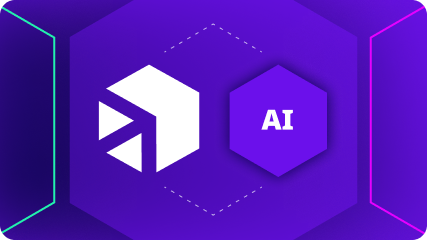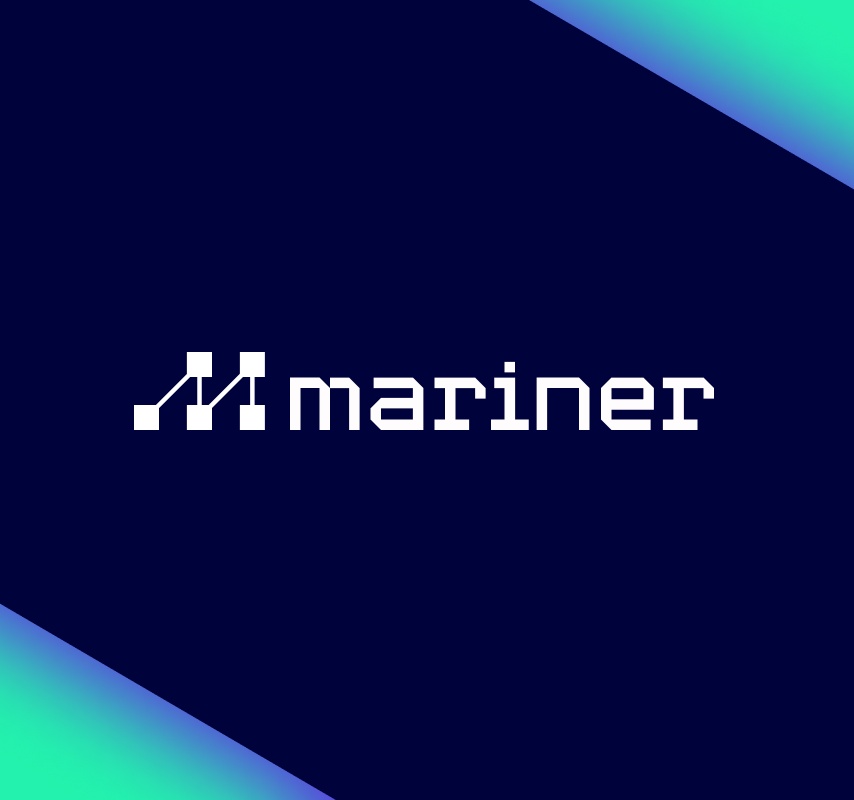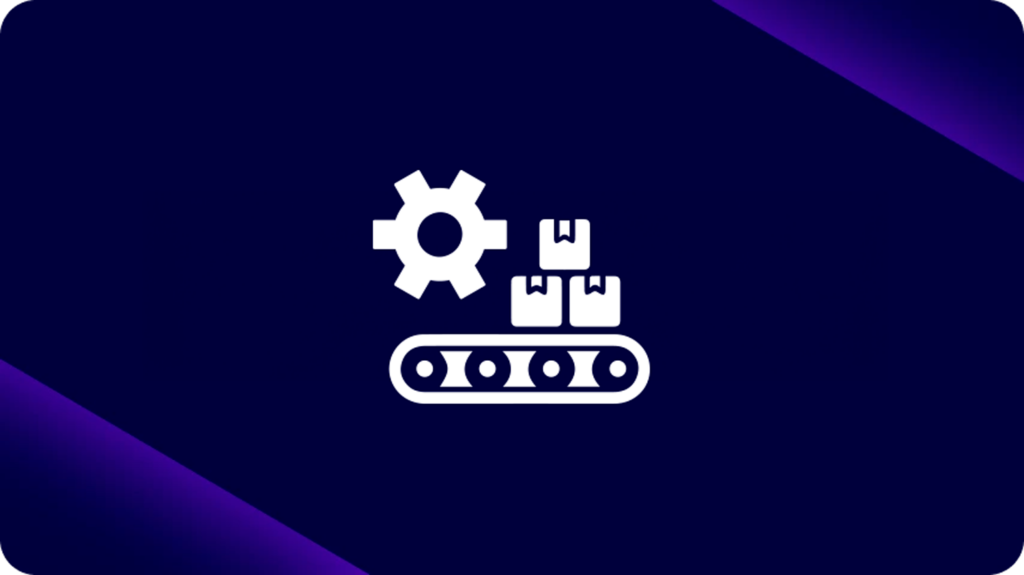October 5, 2022
A integração é um primeiro passo crítico no processo de transformação digital. Para organizações dependentes de infraestrutura legada e dados isolados, não é mais um “bom ter” – é uma necessidade fundamental. Mas quem realmente é o dono do gerenciamento de integração empresarial? Quem são as principais partes interessadas na integração?
Os dados do Relatório sobre o Estado da Integração Empresarial de 2022 revelaram algumas pistas interessantes sobre quem a maioria dos líderes empresariais e tecnológicos pensam que deveria ser o gestor do projeto de integração:
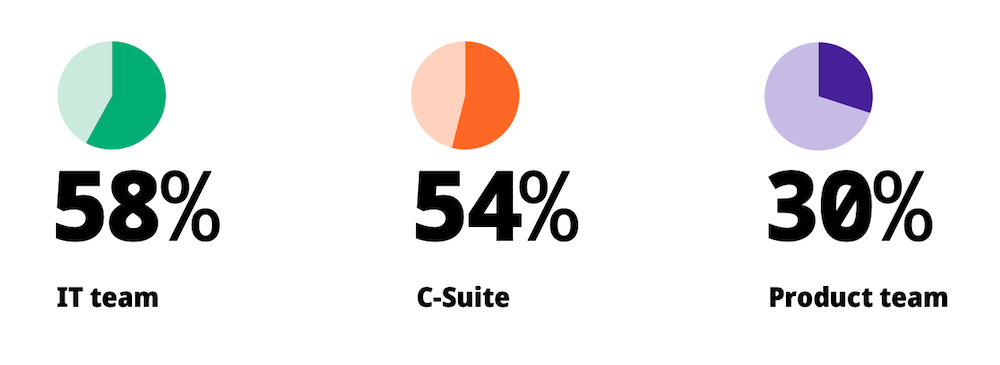
Ele também destacou uma divisão acentuada entre as possíveis partes interessadas na integração:
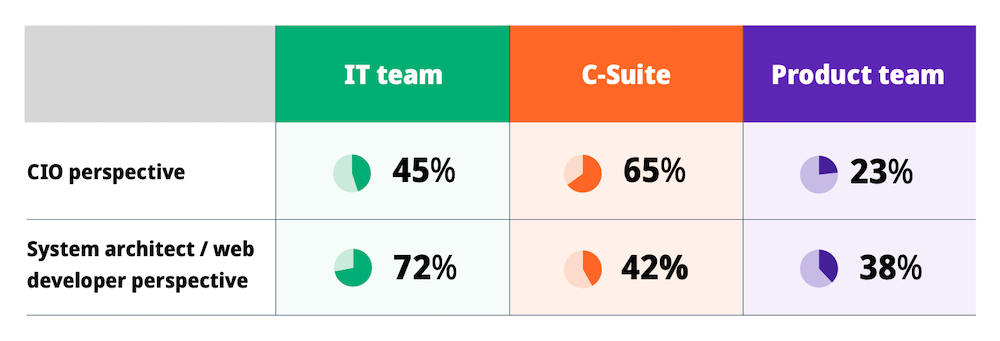
Então, quem realmente deve ser o gerente de integração empresarial? A resposta: Todos.
>> Agende uma demonstração personalizada com nossa equipe de especialistas e veja como o iPaaS da Digibee trará eficiência ao seu negócio.
Partes interessadas com prioridades concorrentes
Por que isso Importa? Além da questão do ego departamental, identificar quem é o dono do gerenciamento de integração é tão importante assim?
É realmente. A solução de integração corporativa que sua organização escolher terá um impacto direto em todos os níveis da organização. E diferentes jogadores em sua equipe podem ter prioridades conflitantes ao considerarem as ferramentas de integração.
O C-Suite
As partes interessadas no nível executivo são responsáveis pela saúde geral e pelo desempenho da organização. As considerações para o c-suite ao selecionar uma solução de integração incluem custo, segurança, tempo de inatividade reduzido e suporte para crescimento e inovação.
Depois que o projeto de integração é implementado, essas partes interessadas esperam ver resultados que ajudem a expandir os negócios. Por exemplo:
- Entrada acelerada em novos mercados e geografias
- Resposta rápida e ágil às mudanças do mercado
- Integração simplificada de novas tecnologias, aquisições e outros facilitadores de negócios
Equipes de TI e Produto
Essas partes interessadas, especialmente os membros da equipe de TI, geralmente têm a tarefa de supervisionar os sistemas em toda a empresa e garantir que os dados e processos estejam disponíveis para todos que precisam deles. Para esses trabalhadores, o topo da lista é uma solução de integração que irá descarregar e automatizar o trabalho demorado, capacitando-os a se concentrar na criação e manutenção de integrações.
Dado profissionais de TI qualificados são tão escassos, não é surpresa que esse grupo tenda a se concentrar mais em como a solução afetará sua carga de trabalho:
- Facilidade de construção e manutenção de integrações
- Capacidade de automatizar tarefas
- Tempo necessário para integrar
- Efeitos da integração em outros sistemas
“Desenvolvedores Cidadãos”
Embora nossos dados sobre quem é o proprietário do gerenciamento de integração se concentrem nas perspectivas de CIOs e profissionais de TI, outro grupo também se beneficia da integração corporativa: os desenvolvedores cidadãos.
Esses trabalhadores vêm de diferentes partes da organização e são capazes de usar não e low-code, gerenciamento de dados e ferramentas de análise para automatizar processos por conta própria, beneficiando suas equipes sem aumentar a carga de trabalho de TI e de outros departamentos.
E esse segmento da base de funcionários está crescendo rapidamente. O Gartner prevê que, até 2023, o número de desenvolvedores cidadãos ativos em grandes empresas será pelo menos quatro vezes o número de desenvolvedores profissionais.
No entanto, esse nível de independência tem um custo, com desenvolvedores cidadãos geralmente responsáveis por sombra de TI dentro da empresa, levando a maiores riscos de segurança e ineficiências organizacionais.
Esses trabalhadores da linha de frente possuem um conhecimento inato do workflows e processos que a integração empresarial pretende suportar. Convocá-los para atuarem como partes interessadas em sua iniciativa de integração servirá ao projeto e permitirá que você incuta as melhores práticas desde o início para minimizar problemas de TI obscura.
Envolva todas as partes interessadas na integração para ter sucesso
A investigação para o nosso relatório de 2022 também revela que a grande maioria das empresas dos EUA não desenvolveu ou implementou uma estratégia de integração devido a preocupações relacionadas com orçamento, segurança, conhecimentos especializados ou sistemas legados. Embarcar no caminho da integração é claramente um desafio para a maioria das empresas – a incapacidade de alcançar consenso sobre os objectivos de integração apenas agravará estas questões.
Para que uma estratégia de integração empresarial seja bem-sucedida, as perspectivas e prioridades de uma ampla gama de partes interessadas devem ser consideradas e equilibradas. Resumindo: todos são donos do gerenciamento de integração empresarial. A solução certa permitirá que a equipe de TI maximize a eficiência organizacional, dê suporte à produtividade dos desenvolvedores cidadãos e mantenha o controle e a governança necessários para minimizar o tempo de inatividade e os riscos de segurança.
Desenvolver sua estratégia de integração corporativa de forma colaborativa pode ajudar a aliviar a carga dos arquitetos e desenvolvedores de sistemas, ao mesmo tempo em que capacita outros departamentos e aumenta a capacidade de inovação e crescimento de sua organização.
O iPaaS empresarial da Digibee é uma ferramenta intuitiva e fácil de usar que simplifica e acelera os processos de construção, teste e manutenção de integrações empresariais. Nosso modelo de negócios exclusivo minimiza custos e prazos, permitindo que as empresas implementem integrações rapidamente sem a necessidade de conhecimentos adicionais.
Para saber mais sobre como podemos ajudar sua estratégia de integração a ter sucesso, baixe sua cópia gratuita do Estado da Empresa Integrada 2023Relatório de ração hoje mesmo.
Seus dados, totalmente integrados, em menos de três semanas. Deixe Digibee mostrar-lhe como.



